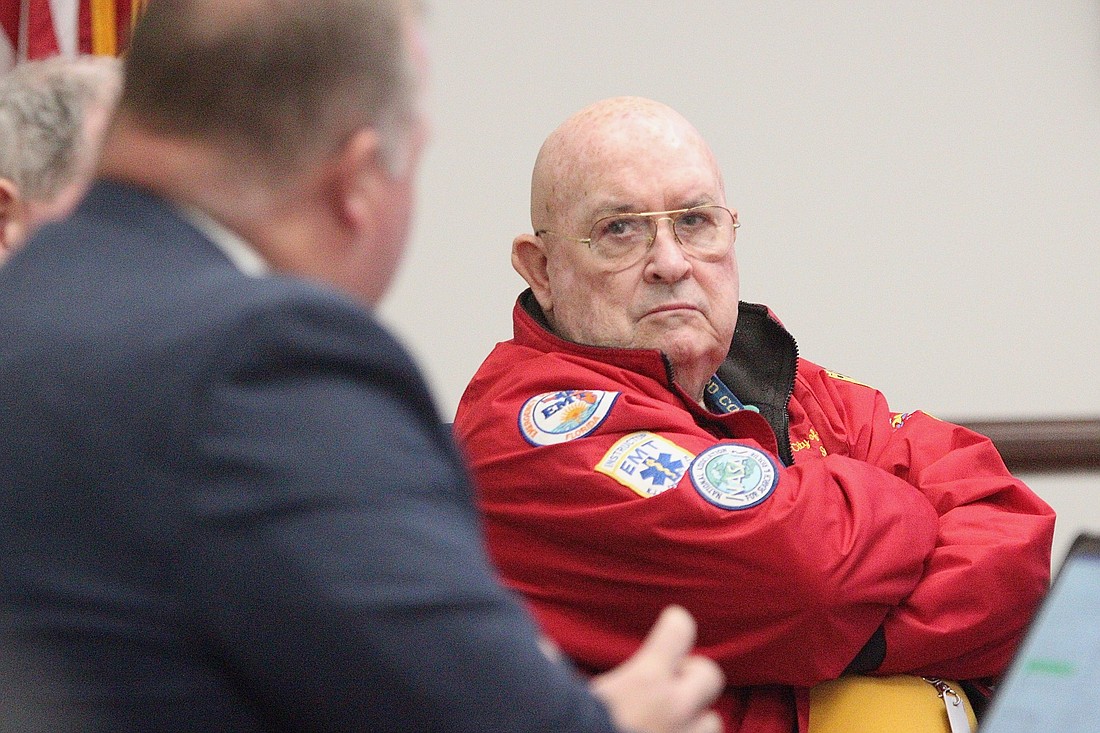- December 15, 2025

Palm Coast is preparing to spend approximately $3 million to resurface city roadways.
The City Council during its Jan. 28 workshop considered a $2.86 million contract with Halifax Paving for the work. Up to another $100,000 would be set aside for construction engineering and inspection services. Including a 10% contingency, the project cost is expected to be about $3.25 million.
Because the session was a workshop and not a regular business meeting, the council did not vote on the agenda item — that will occur at a future business meeting.
The stretches of arterial roadway that would be repaved this year include Palm Harbor Parkway from Palm Coast Parkway to Coral Way; Belle Terre Parkway from Royal Palms Parkway to Palm Coast Parkway eastbound; and Old Kings Road from State Road 100 to Town Center Parkway.
The city determined which streets to resurface when based on the work of a firm called Transmap Corporation, which the city paid to conduct a study known as a "pavement condition index," or PCI.
On a scale of zero to 100, with 100 being best, Palm Coast's roads average 79, according to the Transmap study.
The proposed work is already part of the city's 5-year work plan for its roadways. In addition to resurfacing, the work would include some work on traffic signals and pavement markings, according to a city staff document.
Although the work has been planned and the first two years are funded, City Traffic Engineer Michael Grunewald said, "There is a gap in the 5-year plan budget versus the funding you need to complete the 5-year program."
City staff, in preparation for the resurfacing project, also looked into strategies for optimizing roadways for technological advances.
"The not-so-silent next wave ... is the autonomous vehicle," Grunewald said, adding that city staff has gathered information on how roads might need to change in order to accommodate autonomous cars. What seems to be needed, he said, is "clear and consistent roadway striping, and the highest visibility possible.”
City Councilman Bob Cuff asked about the possibility of striping the roads in residential areas in order to reduce speeding, as certain types of striping — in particular, wide stripes that have the effect of making each lane appear narrower — have been shown to prompt drivers to slow down. Mayor Milissa Holland expressed interest as well.
Grunewald warned that adding striping on residential streets may affect driver behavior in an unexpected way, by prompting drivers who are used to striped roads being arterials to think of the residential striped roads as arterial as well.
When it comes to the sale of cigarettes and conventional tobacco products, the state has control, pre-empting municipalities from regulation. But that's not the case with e-cigarettes and e-cigarette products, and City Councilman Jack Howell has suggested that the city pass its own ordinance to regulate how and to whom e-cigs may be sold.
The proposed ordinance would ban the sale of vaping equipment to minors under 21, ban vaping in places where cigarette smoking is banned, ban the sale of vaping materials in vending machines and require that e-cigs and nicotine liquids be kept out of customers' direct reach when sold in stores.
The federal government already bans the sale of tobacco products, including e-cigarettes, to anyone under the age of 21.
Howell first proposed the ordinance during a Dec. 10 workshop, saying it is intended to protect young people's health: the school district, he said, has found increasing numbers of students, some still in middle school, using e-cigarettes.
Mayor Milissa Holland asked during the Jan. 28 workshop whether e-cigs are handmade or made by a manufacturer. Although hobbyist makers exist, e-cigarettes are typically mass-produced and generally consist of several parts — a mouthpiece, a heating element, and a capsule that holds a certain amount of flavored liquid containing a pre-selected quantity of nicotine.
"I hate sitting here having conversations on, 'What will Tallahassee do,' because you never know what Tallahassee’s going to do. ... If we have a moment that we can help design and craft what's good for our community, then I don’t want to sit here and go, ‘What if.’"
—MILISSA HOLLAND, Palm Coast mayor, on a proposed city ordinance on e-cigarettes.
To use the device, an e-cigarette user will place the mouthpiece to their lips and inhale, drawing a small amount of the liquid over the heating element, where it is converted to vapor before entering the person's mouth.
City Councilman Eddie Branquinho noted that in the weeks since Howell first proposed an ordinance, a bill including similar regulations has been proposed in the state Legislature. He suggested that he city wait and find out what the state will do before taking action. Also, he asked, how would the city enforce such an ordinance?
Howell said the city's Code Enforcement staff could respond to complaints about stores displaying e-cigarette products in violation of the code.
Holland said she didn't want to wait to see what the state does — just 14% of bills make it through the Legislative session, she said. And, if needed, the city could amend its ordinance in response to any new state law.
Councilman Nick Klufas said he was in favor of the ordinance.
"If we make this motion and one store posts this behind their counter, even if everyone else is still in violation ... that is still a net positive," he said. "If we help one person, that’s a net positive."
Howell said he doubted the city's ordinance would end up at odds with a new state law.
"I just think from my perspective that ... we’ll be alright with this ordinance," Howell said. "I don’t see any conflict."